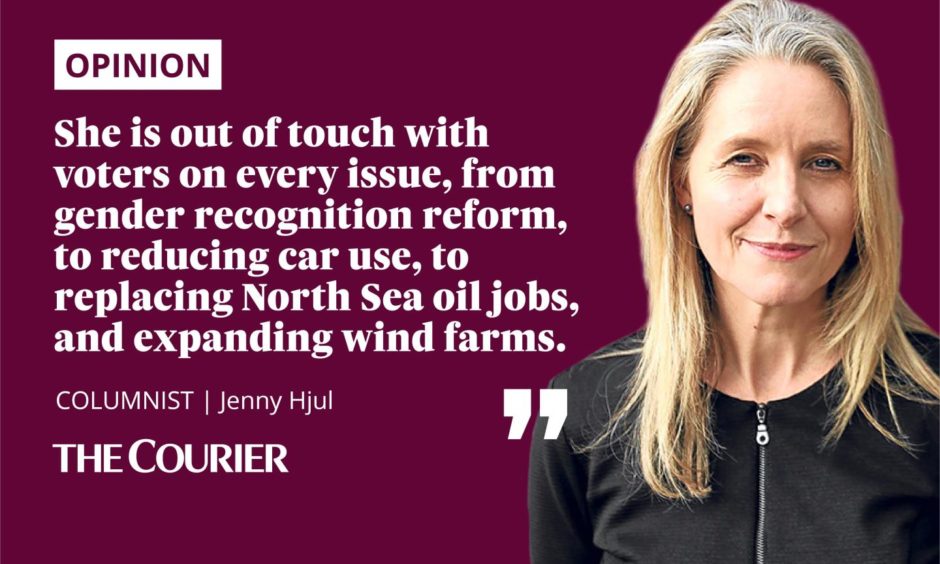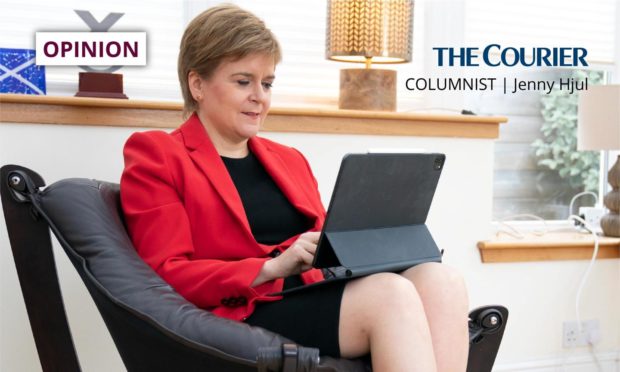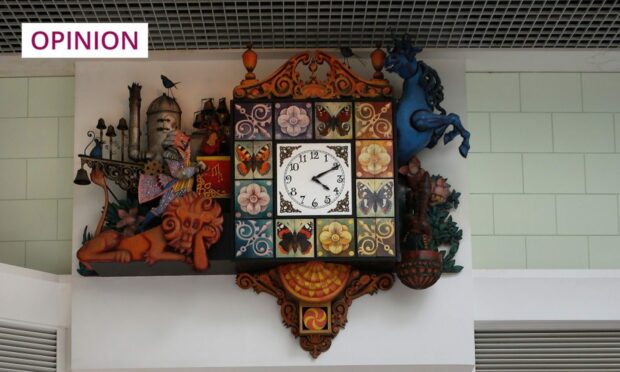In her conference speech two years ago, Nicola Sturgeon said a second independence referendum “must happen next year”. That was 2020 and, as it turned out, it was not the best time to stage a political campaign.
In last year’s speech, some eight months into the pandemic, she pledged to hold a referendum in the early part of a new parliament if the SNP won the May 2021 election.
Now, with her Green coalition giving her a pro-independence majority at Holyrood, she has told the party faithful she is seeking a new vote before the end of 2023.
The SNP have an “unarguable mandate”, she said, and the time is now approaching.

Separatist zealots can be excused at this point for feeling exasperated with the Scottish Nationalist leadership.
How many mandates have come and gone since the SNP won power 14 years ago without the prospect of breaking up Britain drawing any closer?
The lack of progress in achieving its only goal has created deep divisions within the secessionist movement and within the party itself.
Of course, there are other factors that have driven a wedge between the different factions, the most obvious being the falling out of the two leaders, past and present.
But this enmity provides a convenient platform for dissent, so that disillusioned Nationalists, once bound by internal party discipline, can now openly attack the First Minister for dragging her heels.
They have taken to this with relish in the breakaway Alba party, with leader Alex Salmond telling his conference that Sturgeon’s attempts at a re-run of 2014 were like Groundhog Day.
Sturgeon faces internal issues
Sturgeon also has outspoken critics in the SNP, most notably the MP Joanna Cherry, who has called for Scotland to pursue the Irish route to independence if Westminster continues to withhold its permission for a referendum.
And the SNP MP Angus MacNeil reportedly tried, but failed, to bring a motion to conference arguing for the 2026 Scottish election to serve as a de facto referendum should the SNP win again.
Sturgeon has presided over her party during circumstances that favoured the independence agenda.
First there was Brexit, opposed by a majority of Scots, giving the SNP grounds to claim another mandate.
And then there was Boris Johnson, disliked in Scotland regardless of the independence question and therefore another gift to the SNP.
Sturgeon also milked the Covid crisis to gain political advantage, appearing on our television screens almost daily in her mother-of-the-nation broadcasts.
But recent polls show Scottish attitudes to independence have remained entrenched, with more than half the electorate still to be convinced of its merits.
Political scientist John Curtice has suggested a referendum now would be risky for Sturgeon.
Thoughts on what today's @Survation and @OpiniumResearch polls tell us about public attitudes towards the timing of #indyref2. https://t.co/boXnUhLK6L
— What Scotland Thinks (@WhatScotsThink) September 9, 2021
She has said before that there would not be a new ballot unless there was “strong evidence” that a clear majority of Scots support breaking away from the Union.
Why does she not just accept that she is nowhere near this target?
There are plenty of other burning issues for the Scottish government to attend to, not least the painful economic recovery from Covid, that would justify her delaying further referendum talk.
But as her premiership wears on, she is sounding almost as desperate as the fundamentalists in her party, clinging on to the independence dream that she must now realise is unattainable under her command.
Sturgeon knows goal is out of reach
The fact that she has devised no strategy for separation and has not brought forward legislation for a referendum in her programme for government suggests she knows she will not see it through.
Instead of detailed planning, she builds mirages. An independent Scotland could be like Denmark, she said.
But Denmark is not the drugs capital of Europe and does not have a national deficit, even before Covid, of £36 billion, the highest in Europe.
Nor does it have a reputation for incompetence.
As one of her own economic advisers, Mark Blyth, said: “Denmark took 600 years to become Denmark.”
The Nationalists under Sturgeon have had seven years with control over domestic policy, and higher per capita spending than the rest of the UK, to tackle crises in health, education, transport, law and order, and the economy.
But she has become tone deaf to the demands of her countrymen and women, with her narrow focus on constitutional upheaval.
A weekend Panelbase poll revealed only 17% backed a new independence vote in the next 12 months.
She is out of touch with voters on every issue, from gender recognition reform, to reducing car use, to replacing North Sea oil jobs, and expanding wind farms.
Sturgeon rages at Westminster for holding back Scotland’s “destiny”.
Democracy will prevail, she said.
But the democratic will of her country, as clearly stated in 2014 and in nearly every poll since, is to remain part of the UK.









